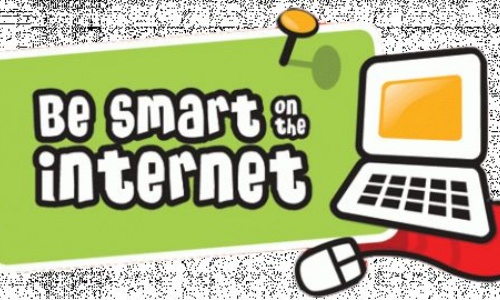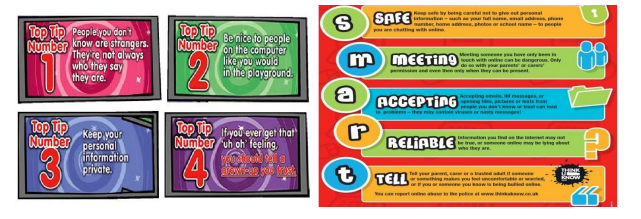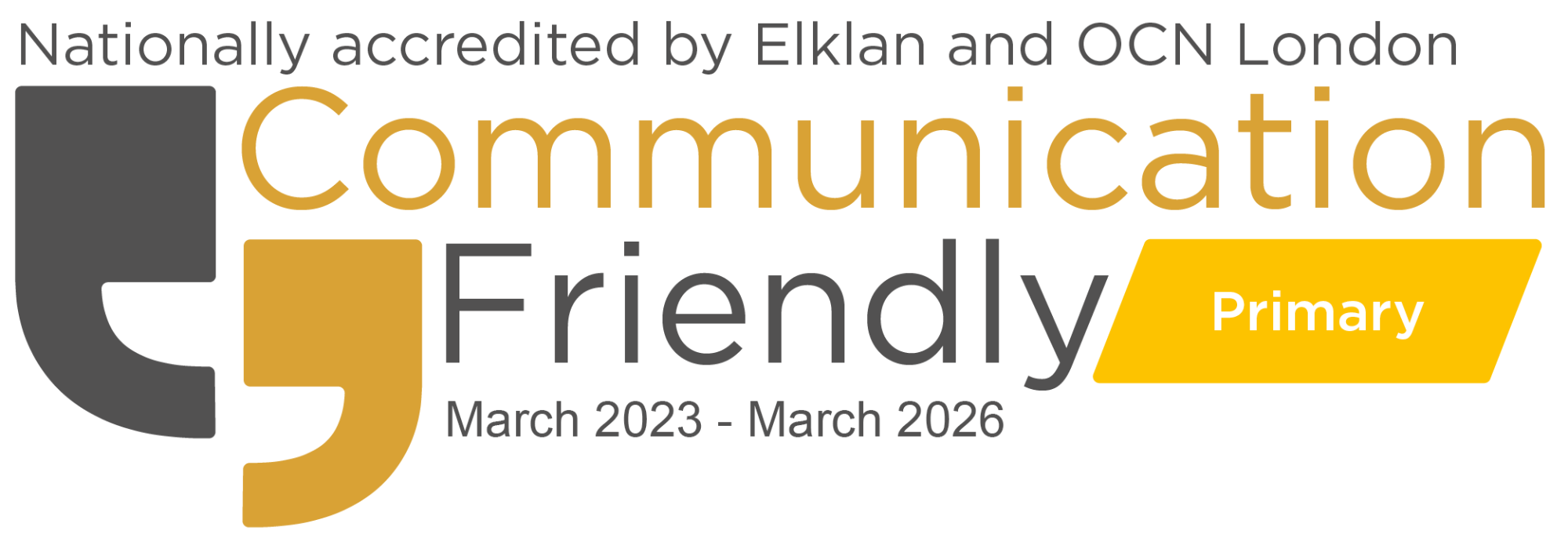Online Safety Advice and Guidance
St Hugh of Lincoln Online Safety Policies
- Acceptable Use of Technology (Under view)
- Child Friendly Acceptable Use Policy
- Online Safety (Under view)

Online Safety Talk - Sharon Girling OBE 31st January 2023
On 31st January 2023 we were delighted to welcome Sharon Girling, OBE, into school to lead us in a day of e-safety awareness and training for pupils and staff. In addition to this, we were extremely pleased that Sharon hosted a session for parents.
Sharon is a former police officer who retired from the Child Exploitation and Online Protection Centre (CEOP) following thirty years’ service. She was at the forefront of a national and international response to online child abuse and developed the processes and procedures that led to the creation of CEOP. She is currently conducting training programmes for schools, law enforcement and businesses both nationally and internationally. Sharon has been awarded an OBE for her services to policing.
We are looking forward to welcoming her back to St Hugh's during the Spring Term of 2024 when she will be leading a series of further workshops.
Online Safety Talk - Sharon Girling OBS 23rd January 2024
Here are the latest tips from Sharon following her visit on 23rd January:
Parent should do’s
▪ Use your child’s correct date of birth
▪ Limit games to those curated by Roblox staff
▪ Monitor the account
➢ Review the chat
➢ Look at the private messages
➢ Check the friends and followers
➢ Recently played games
➢ Purchases and trades
• Online interactions
➢ Log in to roblox.com
➢ Click the Gear icon in the top right
➢ Select Settings then Privacy
➢ Restrict interactions via Content Settings and Other Settings
Facts and tips
a) It may be worth reminding parents to enable parental controls at home both on their router and the devices that children are accessing. Parental controls can be found on the website of their internet service providers and are simple to implement. (BT, Virgin, Sky, TalkTalk etc.).
The device settings can be found on YouTube by entering the device name and ‘Parental controls’.
b) Remind children about Sid’s Tips and the SMART rules. We learnt these in the sessions.

c) Think about a family agreement that will help young people manage their online activity. The agreement could include:
➢ Put parental controls on their child’s devices.
➢ Limit the time the family spend online. Pick one night a week where the devices are put away.
➢ Limit the time your child has online. )30 mins year 1 & 2, 45 mins year 3 & 4, 60 mins year 5, and 75- mins year 6).
➢ Do not share pictures they wouldn’t the headteacher to see.
➢ No unsupervised financial transactions for young people.
➢ Remove the Webcam usage.
➢ Know how to switch off device.
➢ Ensure they know how to tell you when something isn’t right online and for a parent to know how to react to their children telling them something doesn’t feel right.
➢ Parent to check their child’s devices.
d) The CEOP and Childnet YouTube channels have some useful films for parents to watch with their child. But these should be watched in a fun way. Think about it as the child’s time to teach their parent and perhaps eat ice-cream or popcorn as they were at the cinema.
e) Disable In-App Purchases on devices the child is assessing.
f) As so many young people are playing online games, we would urge parents to play the game with them. It is the source of a lot of frustration with children that their accounts are ‘hacked’ and their money or content removed by unknown third parties.
g) Visit the ParentInfo website http://parentinfo.org. The content is from CEOP and Parentzone and will help with various apps and platforms.
h) It is really essential that if a child informs their parent or carer that something has occurred online that the parent does not react negatively or show disappointment towards their child. It is likely to discourage future engagement. The child should be congratulated for telling the parent/carer about their concern.
The Education for a Connected World Document
Then add this link https://www.gov.uk/government/publications/education-for-a-connected-world
with this text about it: At St Hugh of Lincoln, we aim to follow The Education for a Connected World framework which describes the Digital knowledge and skills that children and young people should have the opportunity to develop at different ages and stages of their lives.
|
Education for a Connected World A framework to equip children and young people for digital life |
UK Safer Internet Centre
- UK Safer Internet Centre Safer Internet Day 2021 – Parents and Carer Resource Sheet
- UK Safer Internet Centre Safer Internet Day 2021 – What to Trust Online (A Parent and Carer Guide)
- UK Safer Internet Centre Safer Internet Day 2021 – Conversation Starters for Parents
- UK Safer Internet Centre Safer Internet Day 2021 – Family Activities
- UK Safer Internet Centre Safer Internet Day 2021 – Family Online Safety Plan












